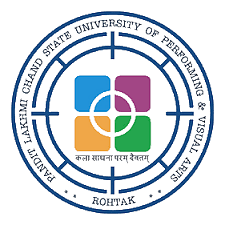Unlocking the Future: The Benefits of
Pursuing a BSc in Finance
In the dynamic world of business and economics, the demand for skilled
professionals who can navigate the complexities of financial markets,
investment strategies, and economic forecasting continues to rise. A Bachelor of Science in Finance is an academic pathway designed to equip students
with the knowledge and skills necessary to thrive in this fast-paced
environment. This blog explores the myriad benefits of pursuing a BSc in
Finance, shedding light on why this degree is an excellent choice for aspiring
financial professionals.
Comprehensive
Curriculum
A BSc in Finance offers a comprehensive curriculum that covers a wide range
of topics essential for understanding the financial industry. Students delve
into subjects such as corporate finance, investment analysis, financial
accounting, risk management, and financial markets. This diverse curriculum
ensures that graduates are well-rounded and capable of tackling various roles
within the finance sector.
Analytical
and Quantitative Skills
One of the core strengths of BSc in Finance at best college program is its emphasis on developing analytical
and quantitative skills. Students learn to interpret financial data, analyze
market trends, and make informed decisions based on empirical evidence. These
skills are crucial for roles in investment banking, asset management, and
financial consulting, where precision and analytical rigor are paramount.
Career
Opportunities
A degree in finance opens up a plethora of career opportunities across
different sectors. Graduates can pursue roles such as financial analysts,
investment bankers, portfolio managers, risk managers, and financial advisors.
The versatility of a finance degree means that professionals can find
employment in various industries, including banking, insurance, real estate,
and corporate finance.
High
Earning Potential
The financial sector is known for its lucrative compensation packages.
Professionals in finance often enjoy high earning potential, with salaries that
can significantly increase with experience and expertise. According to the
Bureau of Labor Statistics, the median annual wage for financial analysts in
the United States was $83,660 in 2020, with top earners making over $159,560.
This financial reward is a compelling reason for many to pursue a career in
finance at top college in India.
Practical
Experience and Internships
Many BSc in Finance programs emphasize practical experience, offering
internships and cooperative education opportunities with leading financial
institutions. These internships provide students with hands-on experience,
allowing them to apply theoretical knowledge in real-world settings. This
practical exposure is invaluable for building a professional network and
enhancing employability upon graduation.
Global
Perspective
The finance industry is inherently global, with markets and investments
spanning across countries and continents. A BSc in Finance often includes
coursework on international finance, global markets, and cross-border
investments. This global perspective prepares students to work in multinational
corporations and understand the complexities of international finance.
Technological
Proficiency
In today's digital age, proficiency in financial technology (FinTech) is
becoming increasingly important. Finance programs often incorporate courses on
financial modeling, data analytics, and the use of software tools like Excel,
Bloomberg, and financial databases. This technological proficiency equips
graduates with the skills needed to navigate the evolving landscape of
financial services.
Ethical
and Responsible Finance
With the growing emphasis on corporate social responsibility and sustainable
finance, ethics and responsible investing are integral components of finance
education. Students learn about ethical considerations in finance, corporate
governance, and the impact of financial decisions on society and the
environment. This knowledge is crucial for professionals who aim to promote
transparency and integrity in the financial industry.
Networking Opportunities
A BSc in Finance provides numerous networking opportunities, both during and
after the program. Students can connect with industry professionals through
guest lectures, seminars, and networking events organized by the university.
Additionally, alumni networks offer a valuable resource for career advice,
mentorship, and job opportunities.
Preparation for Advanced Studies
For those interested in furthering their education, a BSc in Finance serves
as an excellent foundation for advanced studies. Graduates can pursue
specialized master's degrees such as an MSc in Finance, an MBA with a
concentration in finance, or professional certifications like the Chartered
Financial Analyst (CFA) designation. These advanced credentials can further
enhance career prospects and earning potential.
Personal Financial Management
Beyond professional benefits, a degree in finance also provides valuable
knowledge for personal financial management at best university.
Understanding investment strategies, retirement planning, and risk management
can help individuals make informed decisions about their own finances, leading
to greater financial security and independence.
Contribution to Economic Growth
Finance professionals play a crucial role in driving economic growth and
stability. By allocating resources efficiently, managing risks, and
facilitating investment, finance experts contribute to the overall health of
the economy. Pursuing a career in finance allows individuals to be part of this
vital process, making a meaningful impact on businesses and communities.
Conclusion
A Bachelor of Science in Finance offers a diverse and dynamic educational
experience that prepares students for a successful career in the financial
industry. With its comprehensive curriculum, emphasis on analytical skills, and
numerous career opportunities, a BSc in Finance is an excellent choice for
those looking to enter the world of finance. The high earning potential,
practical experience, and global perspective further enhance the appeal of this
degree. Whether aiming for a role in investment banking, financial consulting,
or personal financial planning, a BSc in Finance at top college provides
the knowledge and skills needed to unlock a prosperous future.












